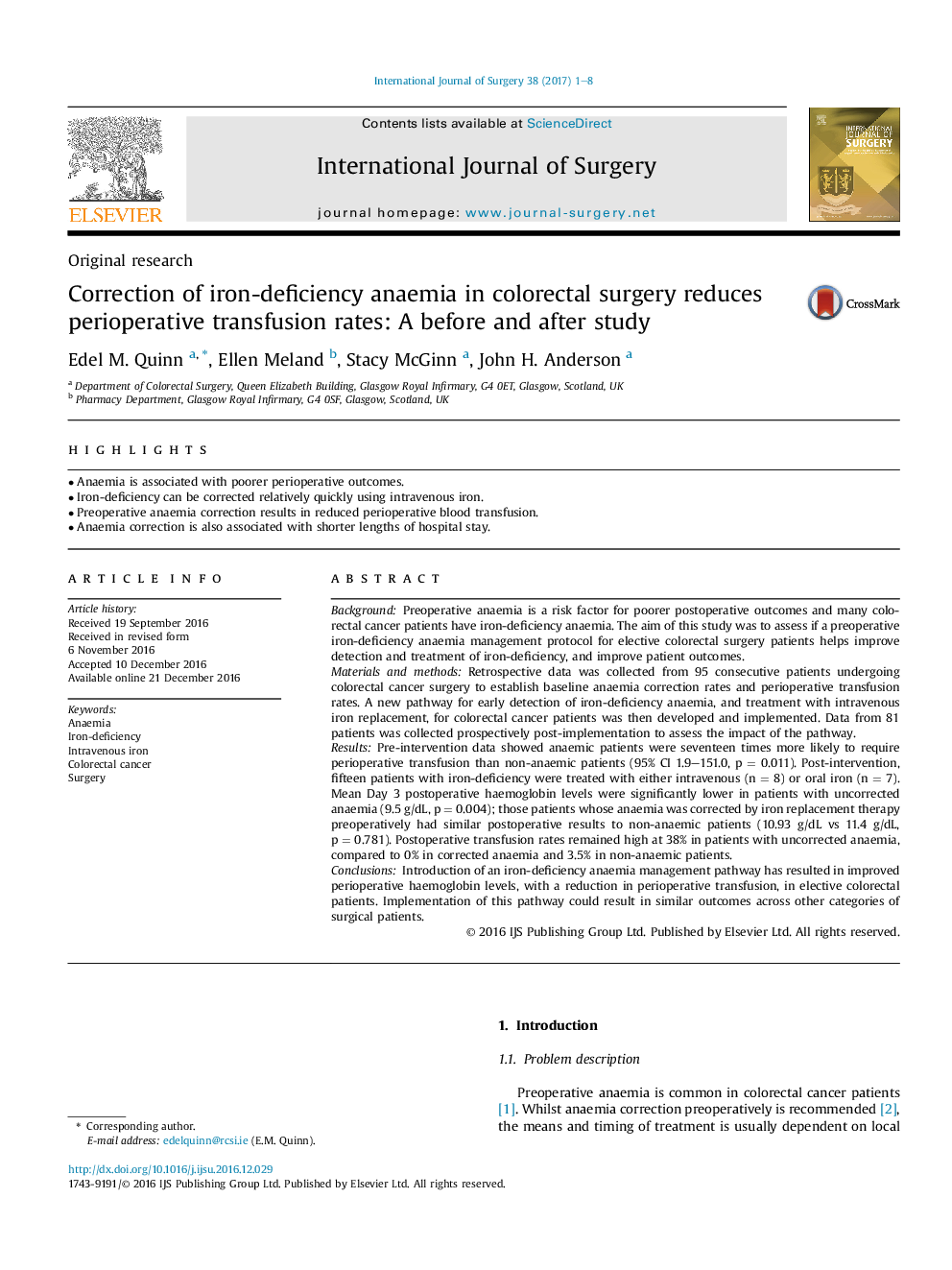| کد مقاله | کد نشریه | سال انتشار | مقاله انگلیسی | نسخه تمام متن |
|---|---|---|---|---|
| 5731849 | 1611941 | 2017 | 8 صفحه PDF | دانلود رایگان |
- Anaemia is associated with poorer perioperative outcomes.
- Iron-deficiency can be corrected relatively quickly using intravenous iron.
- Preoperative anaemia correction results in reduced perioperative blood transfusion.
- Anaemia correction is also associated with shorter lengths of hospital stay.
BackgroundPreoperative anaemia is a risk factor for poorer postoperative outcomes and many colorectal cancer patients have iron-deficiency anaemia. The aim of this study was to assess if a preoperative iron-deficiency anaemia management protocol for elective colorectal surgery patients helps improve detection and treatment of iron-deficiency, and improve patient outcomes.Materials and methodsRetrospective data was collected from 95 consecutive patients undergoing colorectal cancer surgery to establish baseline anaemia correction rates and perioperative transfusion rates. A new pathway for early detection of iron-deficiency anaemia, and treatment with intravenous iron replacement, for colorectal cancer patients was then developed and implemented. Data from 81 patients was collected prospectively post-implementation to assess the impact of the pathway.ResultsPre-intervention data showed anaemic patients were seventeen times more likely to require perioperative transfusion than non-anaemic patients (95% CI 1.9-151.0, p = 0.011). Post-intervention, fifteen patients with iron-deficiency were treated with either intravenous (n = 8) or oral iron (n = 7). Mean Day 3 postoperative haemoglobin levels were significantly lower in patients with uncorrected anaemia (9.5 g/dL, p = 0.004); those patients whose anaemia was corrected by iron replacement therapy preoperatively had similar postoperative results to non-anaemic patients (10.93 g/dL vs 11.4 g/dL, p = 0.781). Postoperative transfusion rates remained high at 38% in patients with uncorrected anaemia, compared to 0% in corrected anaemia and 3.5% in non-anaemic patients.ConclusionsIntroduction of an iron-deficiency anaemia management pathway has resulted in improved perioperative haemoglobin levels, with a reduction in perioperative transfusion, in elective colorectal patients. Implementation of this pathway could result in similar outcomes across other categories of surgical patients.
Journal: International Journal of Surgery - Volume 38, February 2017, Pages 1-8
